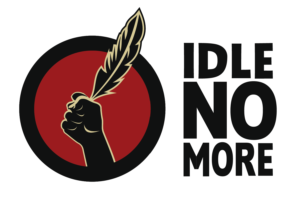United Nations Permanent Forum on Indigenous Issues April 20- May 1, 2015 – Idle No More
“Reality
The impact will not endure-
of that you can be sure
and conquest is not my quest
much less my address. or redress:
so that there then
NOW
you may begin to see
I don’t fly by doctrines
instead we
Nations of Indigenous Peoples
Are, have been, will permanently be-
reality”
-Chantlaca
In 2008 the very first session of the UN Permanent Forum on Indigenous Issues was held. Every year in New York there are 2 sessions to address the issues of Indigenous People . Input is given by community members, Non-profit organizations, Academic Institutions and Indigenous Groups.

The purpose of the forum is to hear the concerns of Indigenous People, globally and to create policy around the needs of Indigenous People. There are a couple of key ways to get involved.
It is really important to participate in this process and although there is an application process involved the UNPFII is open to schools and organized groups.
 Here is a guide to applying to attend the UNPFII as an academic Institution or an Indigenous Peoples Group: http://www.un.org/esa/socdev/ngo/docs/2015/participation-guide-unpfii14.pdf
Here is a guide to applying to attend the UNPFII as an academic Institution or an Indigenous Peoples Group: http://www.un.org/esa/socdev/ngo/docs/2015/participation-guide-unpfii14.pdf
Here you can also find information on the Forum as well as, the Outcome Document on the 14th session:
http://unpfip.blogspot.ca/p/updates.html
While some of the sessions are closed to observers later in the week there are plenty of educational side-events. These events are open to forum attendees and are great for raising awareness and for meeting like minded people.
Some of the sessions I attended we very impactful, enlightening and sad. One impactful side event was the screening of “Ceremony is not a Crime”.
A 20 Minute documentary on the Winemum Wintu Tribe, a state recognized tribe in California asserting their rights to hold ceremony on their traditional land by utilizing the UN Declaration of the the Rights of Indigenous People (UNDRIP) to protect their Women’s Coming of Age ceremony and to fight $10,000 in fines imposed on the tribe.

L-R Anita Lekgowa, Botswana Diphetogo, Mililani Trask, (Name missing Quechua Nation), Chief Caleen Sisk.
Video of the UNPFII and its sessions can be found online to stream. There is a lot to learn about the process, what is discussed and how you can get involved.
